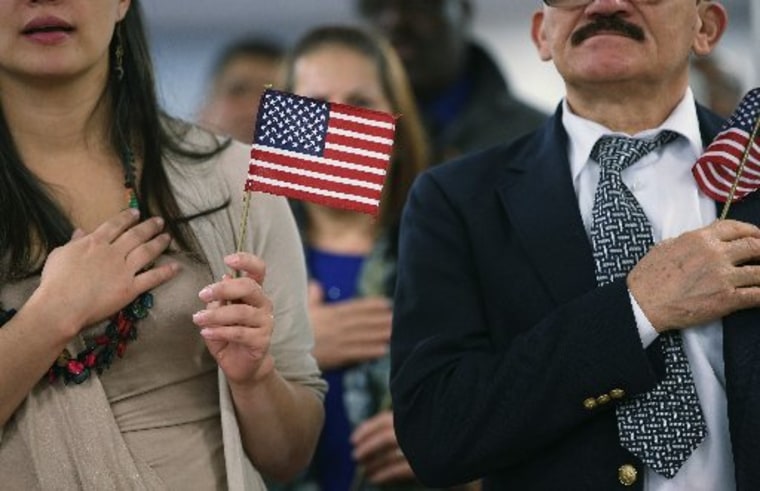Visit NBCNews.com for breaking news, world news, and news about the economy
The inclusion of the LGBT community in the immigration bill is now a hot debate over the proposal.
Democratic Senator Patrick Leahy, of Vermont, plans to introduce the Uniting American Families Act (UAFA) as an amendment to the proposed immigration reform bill, allowing the permanent partners—regardless of sexual orientation—of U.S. citizens and permanent residents in America to obtain permanent resident status, just as a spouse would.
Some Republicans warn that the amendment will derail the bill. Florida's Republican Senator Marco Rubio, a member of the bi-partisan "Gang of Eight" working to pass the bill, recently expressed his concern for the amendments impact on the bill, telling a radio talk show host that the immigration bill is" difficult enough as it is... if you inject something like this in the bill, it will die.”
Leahy said on Meet the Press Sunday, “We’ve had about 10 different things that people have said will kill it... the fact is, a lot of people want to kill the immigration bill no matter what. We will have votes on this. People can vote for or against any one of these amendments.”
It is estimated that Leahy's amendment could benefit about 40,000 couples. There are 900,000 LGBT immigrants in the U.S., of which 267,000 are undocumented.
Leahy went on to say that the so-called Gang of Eight "deserve an enormous amount of credit" and believes the bill has a chance to pass.
Pulitzer Prize-Winning journalist and Time Magazine contributor, Jose Antonio Vargas joined msnbc's Richard Lui to discuss the issue Sunday.
"I am for a bill that is as inclusive as we can possibly get it," Vargas said of the bill. Vargas noted that, as an openly gay and undocumented citizen, "...it's really tough to be asked to make choices" when it comes to proposed legislation. He added that it's like being asked "'What part of you is more equal than the other?'"
